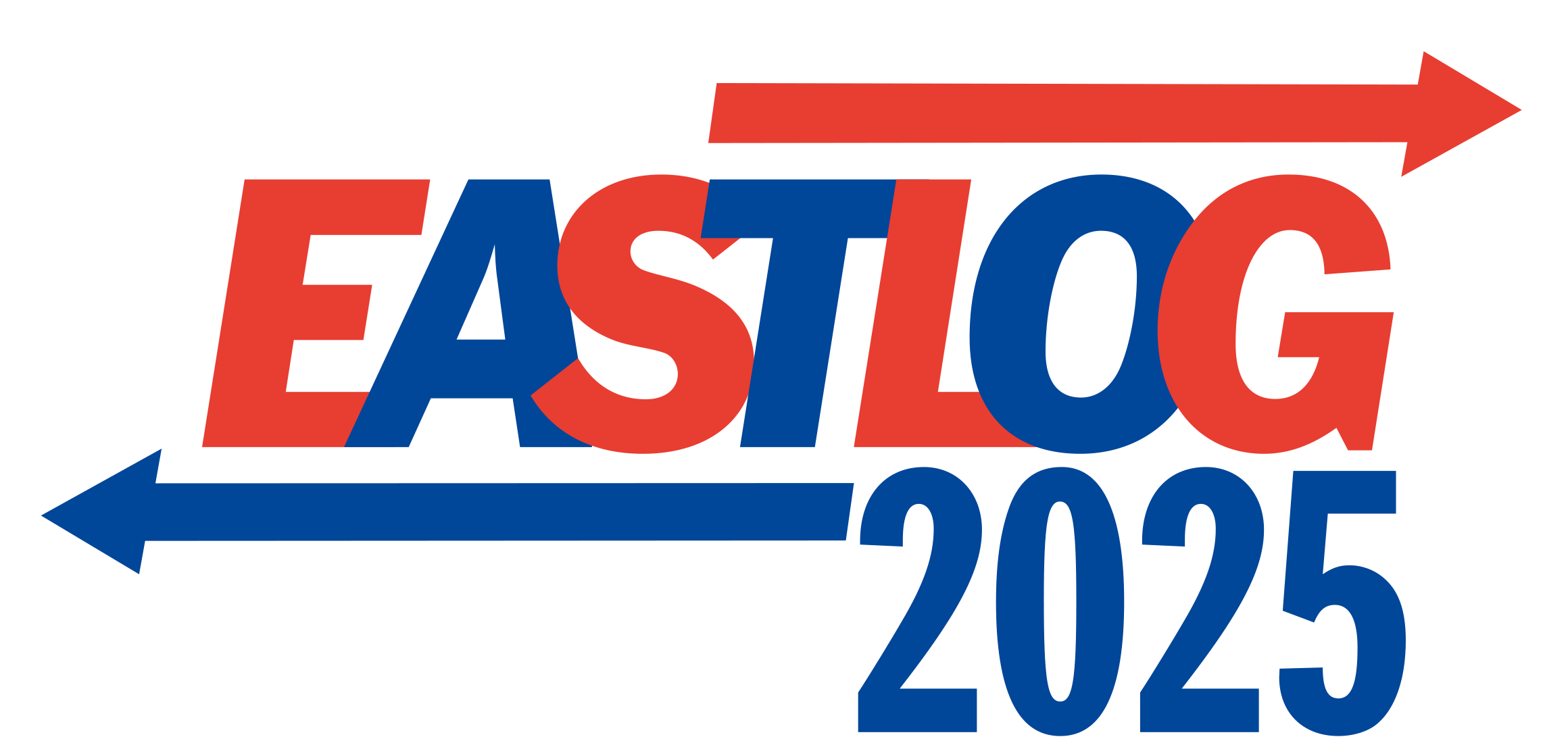Conference program
Be inspired by our dozens of speakersRegistration
Keynote presentations
Tomorrow’s logistics: the ideal combination of automation and artificial intelligence
In a world where logistics is defined by complexity and speed, the key to the future lies in the ingenious combination of artificial intelligence (AI) and automation. This keynote, based on real-world examples and practical insights, will show how AI and automation can be combined to achieve greater efficiency and adaptability. We will look at a wide range of technologies – from AI agents that dynamically control operational processes, to robotics, to computer vision that is changing the face of warehouses. We’ll focus not only on the current state of automation and the real benefits of AI, but also where the next evolution in logistics is headed.
AI in logistics: will we use AI or will AI use us?
Generative AI is no longer just a buzzword – it’s a new colleague that’s changing the game. In this talk, we’ll explore how AI can help with planning, inventory management, customer communication, or predicting delays. But also where it fails and has reserves. We will introduce tools like ChatGPT with Deep Research, Microsoft Copilot, Perplexity, NotebookLM or Eleven Labs. And we’ll look at specific real-world examples of how to use them in day-to-day logistics operations, strategies and leadership. Funny and insightful, but with a clear goal: to leave after 60 minutes with a head full of ideas and inspiration.
Morning coffee break
Panel discussion
Panel discussion: Automation – Science, magic or a well-thought-out strategy?
The world of logistics is undergoing a rapid transformation. Automation and robotics bring unprecedented opportunities but also challenges – not only in terms of investment, return on investment and technology integration, but also in terms of safety, flexibility and the human factor. Mixing the right cocktail of automation, robotics and digitalization in warehouses and supply chains is simply alchemy. The panel discussion will bring together the experiences of technology experts, warehouse technology suppliers, developers and users themselves. Together, we will try to understand the alchemy of automation – so that it not only brings greater efficiency, but also real added value for the company and its customers.
Panel discussion will be moderated by Stanislav Břeň, editor-in-chief of the magazine Logistics Systems.
Lunch & BizLOG
BizLOG speed-dating meetings
For more information: BizLOG
Afternoon sections
Afternoon section: Intralogistics
One of the afternoon blocks will focus on intra-company logistics, because it is in this area that the biggest technical and technological changes are taking place. The section will consist of a series of case studies, in which representatives of both sides of the business case will always speak. The listeners will thus get an idea of how the given innovation was implemented. The case studies will focus on topics such as automation and robotization, the digitalization of logistics processes, the reduction of energy intensity or industrial development.
Afternoon section: Transport & SCM
While the first afternoon section will focus on intralogistics, in the second we will – to put it briefly – look at what is happening outside the company. That means the topic will be transport and supply-customer chains. Both elements are very closely related, which has been particularly evident in connection with the covid-19 pandemic, Russian aggression in Ukraine or tensions in the Middle East. This program point will again be conceived as a set of short case studies that will thematically depict areas such as transport, forwarding, supply chain or inventory management.
HR roundtable
This year’s congress will again include the popular roundtable focused on human resources with experts on personnel issues in logistics and transport. There are many topics to be addressed and discussed: the lack of workers and the associated attractiveness of companies on the labor market, maintaining the motivation and mental health of employees in a period when one crisis follows another, the interplay of people and machines, employee development, a different perspective of young employees on their careers, etc. The roundtable will be moderated, and there will be short presentations that will raise certain topics and stimulate the subsequent debates.
ESG roundtable
This program item is a new feature this year which the organizers have added to address new requirements in the area of ESG. Non-financial reporting concerns all large companies, and, in the future, it will apply to some small and medium-sized ones as well. However, the “mentality” of non-financial reporting pervades the supply-customer chains. The workshop will take the form of a roundtable around which ESG experts will sit. Brief presentations will serve to inspire ensuing discussions among the experts that are present.
Panel discussion
Afternoon coffee break
Keynote presentation
New work rules: a place for people or machines
Artificial intelligence is no longer the stuff of science fiction – it’s infiltrating companies, offices and factories and transforming the labour market in real time. What does this mean for human work? Will some professions disappear altogether? Who will have to look for a new direction and who will gain new opportunities? This presentation will focus on the concrete impacts of AI across sectors – from administration to manufacturing to logistics, where machines are increasingly replacing humans not only in physical work but also in planning. We will show that it’s not just about technology, but also about ethical issues and the need for rapid adaptation. AI is not just a tool – it is a force that can fundamentally change the rules of the game. And the question is not if, but when.
Welcome to the 18th century
Adam Smith’s magnum opus, The Wealth of Nations, turns 250 next year. With little pause, we have cheered on for half a century and a third in breaking down the barriers to global trade. The world was getting smaller and we were getting richer. Are we now experiencing a small pause, or have we bounced from the Fukuyama end of history back to the 18th century? And can we put a price tag on it all?
Afternoon section
Panel discussion: the economy in motion – how are geopolitics and markets changing supply chains?
Supply chains are going through a turbulent period. Pressure to relocate production is growing, trade barriers are becoming the new normal and geopolitical factors are increasingly affecting logistics. Companies are rethinking strategies – seeking a balance between cost, raw material availability and security of supply, and sustainable growth. What factors are determining the direction of global and local supply chains? Are we witnessing a new balance of power in trade and manufacturing? Is the era of globalisation coming to an end? What are the realities of nearshoring and friendshoring? Why are trade barriers and tariffs rising? What determines the relocation of production? How are changes in consumer behaviour affecting firms’ production and logistics strategies? What is the prevailing sentiment among managers? What does the world economy expect in the coming years and how should the logistics sector prepare for it? The discussion will bring together the perspectives of economists, supply chain experts and company managers who are experiencing these changes on the ground.
The panel discussion will be moderated by Zuzana Hodková, reporter of SZ Byznys.
Evening program
LOGISTICS BUSINESS MIXER
For more information: Logistics Business Mixer
Logistics from the farm or Controlled warehouse for Meat-Profit
The supply of technology, supplies and ingredients to the food industry has its own logistical specificities. In 2018, the family-owned company Maso-Profit decided to build an automated mini-warehouse in an old farmhouse in Hrdlořezie. The machine was put into live operation in 2020 and at that time it was the first installation of a Jungheinrich STC2B1A automatic stacker in the Czech Republic. The automatic stacker, which the company quickly came to call Robot Emil, allows employees to operate an entire warehouse with 2,500 crates and more than 10,000 types of goods. The modern intralogistics system also coped with the building’s original gabled roof and made it possible to use hard-to-reach areas. However, it soon became clear that the further development of intralogistics was complicated by the two-decade-old information system. And here begins the next chapter in the story of optimising logistics flows. Maso-Profit started to write it together with K2 atmitec.
Optimisation of logistics and warehouse management with a payback period of six months
The case study deals with the optimization of warehouse management in Plant Simulation – Digital Factory. The main objective was to solve the problem of pallet overload in the receiving area and to propose an efficient alternative to the planned construction of a new hall. Instead of expanding the existing infrastructure, the focus was on designing an automated warehouse with optimized material flow. The study evaluates the capacity and efficiency of this solution in relation to the expected requirements of the project. The results show that the proposed system can ensure smooth operation and adequate storage capacity, thus providing the customer with a more efficient and sustainable solution for future development. The cost savings amount to hundreds of thousands of euros at one time and tens of thousands of euros each year thereafter. The project’s return on capital expenditure (Capex) was less than six months.
Components are transported between production and packaging at Clarios Plastics by automatic machines
The company Clarios Plastics Czech, based in Česká Lípa, is a major manufacturer of plastic components for car batteries, such as boxes, lids, covers and other parts. With a production capacity of 80 million units per year and a team of 170 employees, it is one of the key players in this segment. Clarios also has a plant in Česká Lípa for the production of car batteries. To increase efficiency and in response to the growing demand for batteries, Clarios Plastics Czech has invested in automating pallet handling between the production facilities and the packaging line. Initially, approximately 100 pallet positions were manually operated by forklifts. By automating this process using TMHCZ’s Autopilot technology, a more efficient flow of material was achieved without the need to increase the number of operators. The removal of manually guided forklifts from the production and logistics operations also improved operational safety.
Warehouse on the move: A comprehensive solution for Tchibo’s distribution centre
Together with its customer, Tchibo, Dematic will present a tailor-made solution for the distribution centre in Cheb. This is an installation that is characterised by its high complexity. At the heart of the DC is the pouch system, a hanging bag system from Dematic. It is ingeniously connected to other hardware and software parts of the warehouse, including 110 packing points, 50,000 pallet positions and shuttles.
Panel discussion: How to successfully automate intralogistics?
What are the main challenges of automation projects and what lessons can we learn from them? The panel discussion following the Intralogistics section will focus on sharing experiences with the implementation of advanced technologies in warehouses and manufacturing plants. Panelists from both suppliers and users of intralogistics solutions will share their insights from specific projects. How did they deal with the obstacles? How have they managed to align new warehouse technologies with existing processes and how have their logistics changed? They will discuss the return on investment and what strategies lead to seamless employee adoption of innovation.
The panel discussion will be moderated by Patricie Jakešová, a consultant in the field of retail, logistics and automation.
Focus on greater efficiency
Česká zbrojovka, part of the Colt CZ Group, one of the world’s leading firearms manufacturers, has decided to optimise its logistics processes using the Time Slot Control cloud application. The goal was to eliminate bottlenecks in receiving and shipping, minimize downtime and spread out the work of warehouse operators and carriers. Thanks to the deployment of the booking system, the carriers deliver the vehicles at predetermined times, which reduces operating costs – from shift optimization to savings on the use of handling equipment and labor costs. Uncertainty in the supply of materials and the dispatch of finished products also decreases. Centralised records of vehicles entering the company’s premises increase security, visibility for all users involved and eliminate unnecessary email and telephone communication, and allow reporting on the utilisation of key resources and records of returnable packaging circulating between suppliers and the company itself. What other impacts has this change had on Česká zbrojovka’s operations?
From roads to rails – Intermodal transport in practice
Mondi Štětí, the largest paper mill in the Czech Republic, produces pulp and paper for packaging solutions, which it exports to 80 countries. It employs nearly 1,000 people and has recently completed an investment in a new paper machine, bringing it closer to its target of one million tonnes of products per year. As part of its efforts to make transport more environmentally friendly, it is working with LKW WALTERto expand intermodal transport, which combines road and rail transport. This ensures a more efficient and sustainable distribution of products across Europe, reducing the carbon footprint and increasing delivery reliability. The collaboration demonstrates how long-term partnerships and advanced logistics solutions can help protect the environment and strengthen the sustainable development of the industry.
Recruitment without pain: How OK Trans recruited 13 drivers and mechanics in two months
There is a shortage of over 15,000 truck drivers in the Czech Republic and those who remain are getting older. Transport operators need new professionals without a long wait. Traditional recruitment methods are no longer effective. How to recruit differently? In this short but information-packed talk show, you’ll learn how artificial intelligence and smart automation can make driver recruitment significantly faster and cheaper. Michal Mikulášek, founder of Prodator, interviews Jiří Šiška from OK Trans, who manages a team in five branches and oversees a fleet of hundreds of trucks. Together, they will reveal why they decided to use voicebots, what has worked well for them and why external recruitment is now more profitable than building expensive in-house HR teams. You’ll learn concrete data, real-life experiences, and the reasons why we need to change the way we look at the future of recruiting, not just drivers.
Automation at Lenzing Biocel Paskov simplified the administratively demanding entrance management
Lenzing Biocel Paskov, a company that produces viscose pulp, has decided to modernise its entry system by implementing the Welcomo self-service kiosk. A key element was the interconnection of the self-service kiosks with external systems (Cominfo access control system, SAP and cameras for reading RZs). The integration made the processes faster and simpler, replacing the administratively demanding entrance management. The solution was tailored to the specific needs of Lenzing Biocel Paskov, with the main objective of increasing efficiency and convenience for all parties involved. The result is smoother operation, increased safety and reduced operating costs. The case study shows how digitalization can take logistics operations to a new level and bring tangible benefits in practice.
Panel discussion: The digital revolution in transport
Digitisation and automation are transforming the way freight transport is managed. How are companies adapting to new technologies and which innovations are bringing the greatest benefits? Are there barriers to the adoption of digitalisation and how to overcome them? The panel discussion following the Transport section will focus on practical experiences with the implementation of digital solutions. Experts and representatives of companies already using these systems will share their insights on how technology helps to reduce costs, optimise routes, increase transport efficiency and reduce environmental impact.
The panel discussion will be moderated by Tatiana Koššová, country manager SK of ATOZ Group.
SEELOG
Distribution Centre Rohlik.cz – Horní Počernice
The modern Rohlik.cz distribution centre in Horní Počernice covers an area of 11,700 m² and is the heart of the logistics operation for the capital city and its surroundings. On peak days, the warehouse is capable of handling up to 12,000 orders per day in a 20-hour operation. Visitors get a glimpse of the complete operation – from receiving goods, to consolidating orders and shipping them to customers. The tour also includes a demonstration of two AutoStore warehouse systems of 1,125 m² and 500 m², which contribute significantly to the automation of the operation. Participants will thus experience in real time the operation of a modern fulfillment center where technology, efficiency and precise logistics processes are combined.
The tour will be led by Michael Nemec, Group Automation Manager at Rohlik Group.
Drylock Technologies production and logistics plant in Hrádek nad Nisou
Visitors will see Drylock Technologies’ main plant, which accounts for approximately 60% of the group’s total turnover and production. The operation is the company’s flagship and showcase – offering state-of-the-art manufacturing and logistics facilities and technology. The factory was built in 2012 as a greenfield project in cooperation with the development company VGP. Within ten years, it has grown to a built-up area of 118,000 m². As a result, the plant in Hrádek nad Nisou has become the largest diaper manufacturer in Europe and ranks among the five largest in the world. One of the interesting features is the connection of the production and warehouse halls through a tunnel that runs under the 1st class road towards Poland. The production part of the plant comprises 27 high-speed lines, which can produce up to 1,000 pieces per minute. The Hrádec plant covers the complete product portfolio – from baby diapers to adult incontinence aids. In the intralogistics area, visitors will see various types of shelving systems and one fully automated high-bay warehouse. The primary focus is on high-density storage – the Hrádek plant handles more than 80,000 cargo units (pallet 1200 × 800 × 2400 mm), with a further 50,000 units in external warehouses. On average, 150 outbound and 70 inbound trucks are handled daily. The smooth flow of loading and unloading is ensured by an automatic navigation system with recognition of registration marks, linked to a reservation system for the scheduling of manipulations.
The excursion will be led by Daniel Korec, Logistics Project Specialist at Drylock Technologies.







































